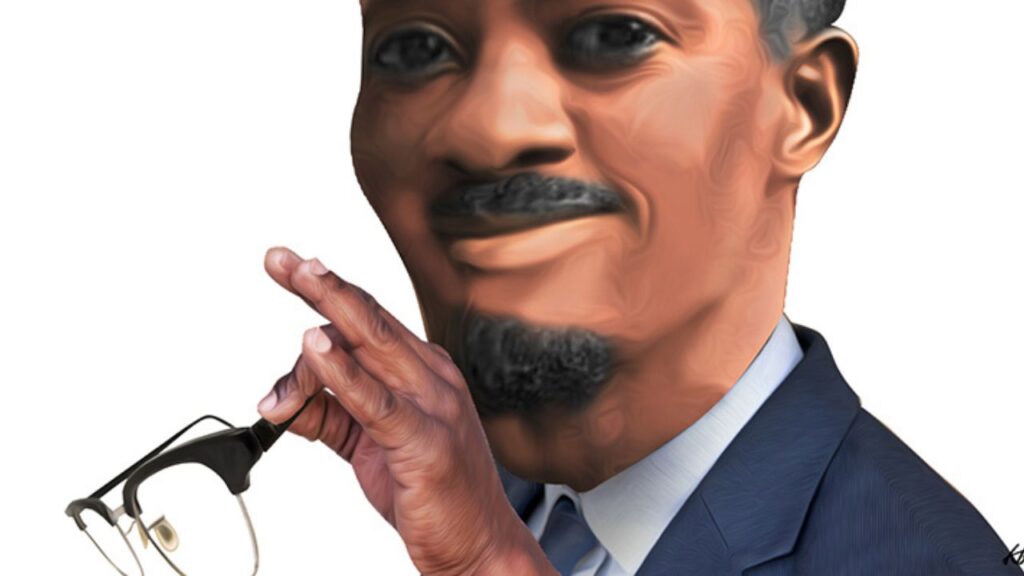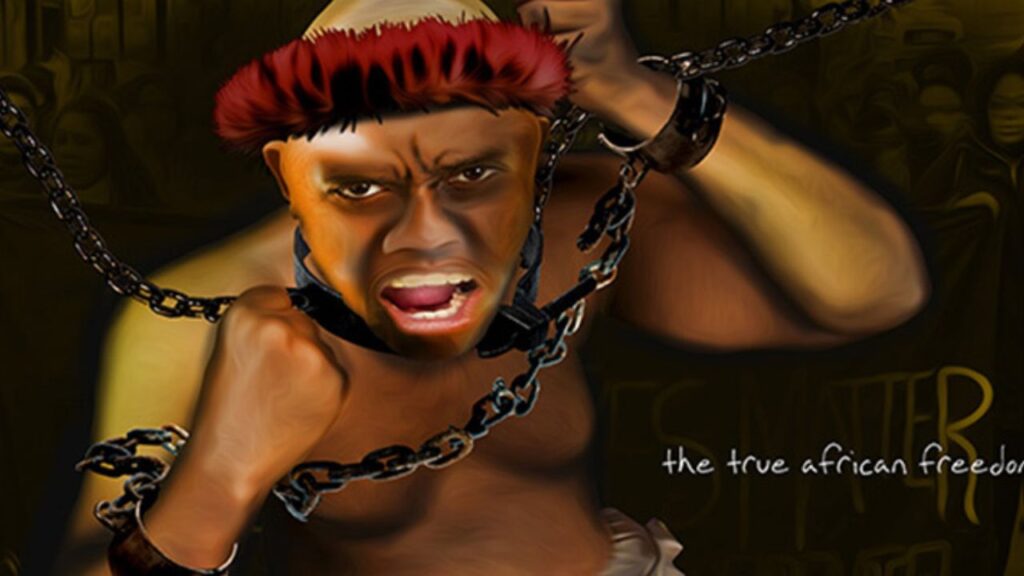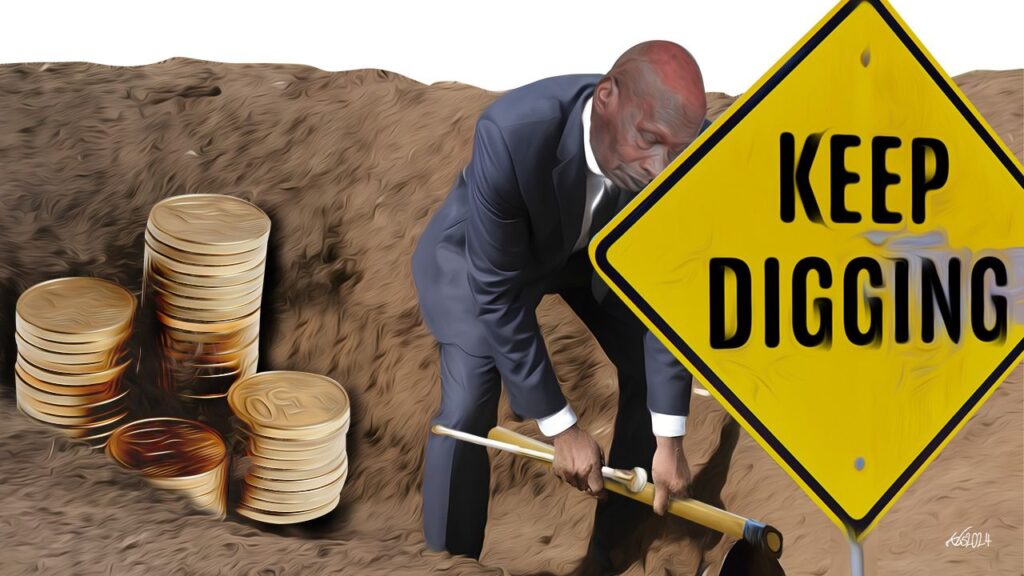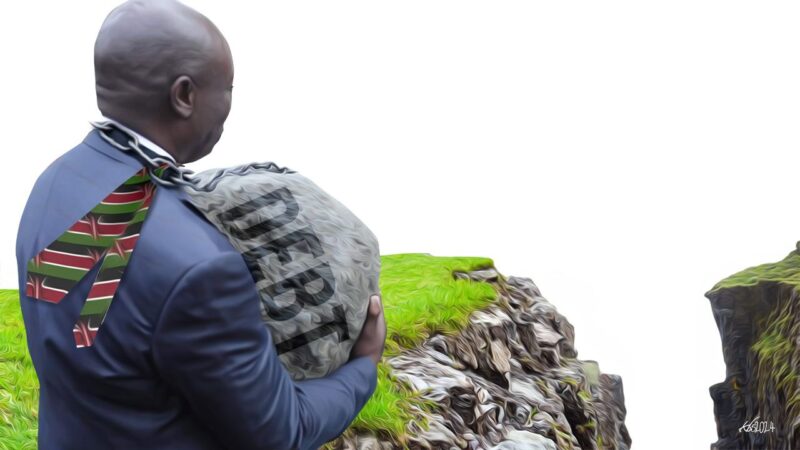“We develop new principles for the world out of the world’s own principles. We do not say to the world: Cease your struggles, they are foolish; we will give you the true slogan of struggle. We merely show the world what it is really fighting for, and consciousness is something that it has to acquire, even if it does not want to.” Karl Marx, Letter from the Deutsch-Französische Jahrbücher to Ruge (1843).
The state of morals in contemporary society, especially regarding money and business matters – i.e. issues to do with earning a living, hustling, putting food on the table, surviving, making profit, hunting riches, acquiring wealth – is a popular topic in public columns in Uganda, Kenya and elsewhere. As highlighted in an earlier blog, a number of analysts’ diagnoses is that we are living in times of moral decline and crisis, as evidenced by widespread and institutionalised economic fraud and other malfeasances in the economy.
Here, I want to argue for a shift in analytical perspective. I want to analytically treat phenomena that are declared to be examples of moral decline (or alternatively, moral bankruptcy and immorality) as instances of something else – an ongoing and profound moral transformation in societies undergoing a comprehensive capitalist restructuring of their polity, economy and culture.
This analytical move implies that we forget for a moment the prognosis of a decrease, thinning out, or dwindling of morals and instead focus on changes of morals in the economy, shifts in society concerning what is regarded as acceptable and unacceptable economic practice, in particular, in the economic sectors, locations (markets, factories, banks, etc.), professions, and so on. And to be more precise, not just shifts regarding notions of acceptable/unacceptable, but also regarding what constitutes legitimate/illegitimate, right/wrong, good/bad, praiseworthy/blameworthy, proper/improper, or desirable/undesirable practice. Of course, you can replace practice with economic order, ‘economic relationship, economic processes, economic outcomes and so on in order to track moral changes in these matters too, but for practical purposes let us focus our analytical eyes on practice.
Daniel Kalinaki, a leading newspaper columnist in Uganda whose insightful analysis I eagerly read every week, recently wrote something to the effect that empathy is on the decline in daily life in contemporary Uganda. His column was titled “At what point does a society lose all sense of empathy? Are we there yet?” There are passages in it, such as, “An entire generation [of young Ugandans] has grown up parentless, valueless and mannerless.” The text ends with: “We are no longer raised by the village but by wolves. This land is broken. This society needs healing. Urgently.”
Arguably, Kalinaki (like other authors that run this line of analysis) writes as if there is indeed an end point concerning cultural decline, as if “all sense of empathy” can indeed ever be lost in a society of nearly 40 million people, as if people really grow up totally valueless, as if a society can really be broken, and, as if it is clear to the analyst when a society has reached rock bottom after which there is no further cultural decline i.e. the absolute end of empathy.
Arguably Kalinaki does not discuss moral decline as such but moral change i.e. a change concerning under what conditions, for what reason, how, to whom, and regarding what people show empathy in today’s Uganda. He, like columnist Yusuf Serunkuma, myself and others, is in fact an analyst of moral change in a rapidly changing country. A significant change in the moral climate in society intrigues us and we try to nail down the nature and causes of that change. In sum, we try to understand what it is that is changing, how, why, and to what effect. Perhaps, above all, we try to figure out how we got here.
Capitalism and its discontents
The spread and intensification of capitalism, as writers ranging from Karl Marx to Edward P. Thompson emphasised, brings cultural-economic change i.e. shifts in dominant norms and values, notions of acceptable practice, boundaries of what is doable, permissible, normal, taken for granted and so on. These processes are conflictual; some actors want the status quo to remain, others want change. Put simply, capitalism, over time, makes the previously unacceptable practice acceptable, at least acceptable to the extent needed to spread, normalise, and routinise the practice. It alters what was previously regarded morally wrong, immoral, and abnormal into right, moral, normal. The unthinkable and outrageous becomes everyday reality and taken for granted moral taboos weaken and dissolve.
In short, capitalism forever alters the moral structure and moral grammar in society, especially with regards to the economy. Importantly, it doesn’t dissolve moral order altogether (“All that is solid melts into air…” as says the Communist Manifesto) but creates new moral new order(s), new orders of right/wrong, good/bad, acceptable/unacceptable, etc. That is why, analytically speaking, the moral decline/bankruptcy assumption is so restrictive; it does not allow us to identify, track and explain this ever-evolving order. It presumes that there is indeed a clear end point concerning the moral regression of humanity, whereas in reality the story of moral change is of moral order alterations on the planet that continue till we have arrived at the figurative “last man standing” moment.
The spread and intensification of capitalism, as writers ranging from Karl Marx to Edward P. Thompson emphasised, brings cultural-economic change i.e. shifts in dominant norms and values, notions of acceptable practice, boundaries of what is doable, permissible, normal, taken for granted and so on.
That said, many people – both professional and non-professional analysts – notice and comment on moral shifts on what is regarded normal and acceptable. For instance, some people, especially older generations who have witnessed and lived under somewhat different moral orders, say that the current norms (culture and moral order more broadly) are upside down. This is arguably a commentary on the large-scale socio-cultural processes that are unfolding in large cities such as Kampala and Nairobi. Of course, these shifts in moral order are generally highly complex processes, not necessarily linear, with various components and sub-components.
This includes changes in how people relate to one another, how they assess their own economic action and that of others, their relationship with money and wealth, and how they define ideas such as individualism, freedom, success, and power. This requires an (re-)assessment and de-/attachment vis-a-vis various social values such as achievement/personal success, enjoyment/pleasure, and self-direction (that serve individual interests) as well as group security, conformity to social expectations, concern for others’ welfare (that serve rather collective interests), and so on.
How did we get here?
Interestingly, in the 19th century Marx had already noted a point or trend that Kalinaki observes in 21st century Uganda. Marx wrote that only “bourgeois society, the society of free competition … [is characterised/constituted by networks of] individuals who remain indifferent to one another”. In other words, we are dealing with a change process that seems inherent to/characteristic of capitalist transformation, driven by larger, historical forces encompassing vast time-space zones.
The United States, the leading example of today’s capitalist market society, is usually a good ground to search for the latest (and sometimes most shocking) moral shifts in global capitalist civilisation and market culture. Just check out what goes on in terms of commercialisation of childhood there: the competitive beauty contests for young girls, the commercial shows, the business models around childhood. Children and teenagers are now on social media channels like YouTube and Instagram – not seldom, supported and cheered on by their parents – to market products and earn significant amounts of money.
The most cutting edge examples, the latest pushing of moral boundaries, is not just coming out of the US. It is only a matter of time, in my view, until the same marketing strategies (i.e. modern day child labour) will be used on Ugandan and Kenyan children. Ugandan artist Fresh Kid might well be the first Ugandan child to become an academic case study of that sort of commercialisation of childhood years down the road; the Ruparelia group, linked to tycoon Sudhir Ruparelia, has just started its relationship with the child (giving him a scholarship of the Ruparelia Foundation to start with).
Again, one key question for this and any case of moral-economic change under capitalism is: how did we get here? When did we start selling stuff to kids, making them (and their parents) objects of profit-oriented business strategies, and targets of relentless marketing campaigns? When, how, and why did we start selling kids unhealthy, health-endangering food that makes them addicted and obese?
When did we start telling people, and the poorest in particular, that taking a loan (i.e. being indebted) is a good, desirable thing? When did we start putting up commercial betting businesses and gambling shops in the poorest neighbourhoods? When did these practices become part of common sense i.e. morally acceptable? What changes in culture, politics and economy were required for these practices – and the underlying business models and ways of thinking and feeling – to become widespread and seen as normal (instead of abnormal and demanding outrage and protest)?
Again, one key question for this and any case of moral-economic change under capitalism is: how did we get here? When did we start selling stuff to kids, making them (and their parents) objects of profit-oriented business strategies, and targets of relentless marketing campaigns?
How did matters of economic and political power (i.e. specific class interests) drive this change? How did public disagreement, criticism, struggle and resistance of some groups shape and later change (but not entirely stop) these processes? When, how and why did we (or rather they – the powerful actors) make all the other unsettling, weird, dubious, shocking practices in the capitalist economy sufficiently acceptable and normal to become taken-for-granted routine practice? To ask these questions about moral change is to focus on the major enabling conditions, factors and actors that can trace and explain these major change trajectories?
The “sugar daddy” phenomenon
Against the above, let’s go to an illustrative example from the region – a recent report about sugar daddies in Kenya. In an exemplary fashion, it highlights the moral change process I am talking about here: “[In] Kenya, and in some other African countries, ‘sugar’ relationships seem to have become both more common and more visible: what once was hidden is now out in the open – on campuses, in bars, and all over Instagram…[We] have arrived at a point where having a ‘sponsor’ or a ‘blesser’ – the terms that millennials usually apply to their benefactors – has for many young people become an accepted, and even a glamorous lifestyle choice. Estimates suggest that about 20-25% of female students nowadays have a sponsor/transactional sexual relationship with an older man.”
Arguably, this “sugar daddy” phenomenon and related practices and underpinning morals did not exist in this particular way even three decades ago. Of course, this practice and related morals are contested and some observers will declare it all as immoral, a reflection of moral decline. But it is highly instructive to start seeing and studying these phenomena from a moral-economic change perspective, thus, identifying the drivers, the enabling conditions, and so on.
Importantly, note that this phenomenon has grown in other countries too, including in the UK and other “developed” countries (see here for an overview of sugar daddy websites and their instructive titles – e.g. Whats Your Price’, Established Men, Find Rich Guys’ Rich Meet Beautiful, Miss Travel).
One of these agency website notes: “In 2017, 100,000 U.K. students registered on Seeking Arrangement, which represented a 72 percent increase from the previous year, in order to find some relief from tuition, student loan debt, and other college-related costs. The presence of a monthly allowance and a financial arrangement adds to the allure of the lifestyle. Finding the right Sugar Daddy can help a Sugar Baby stay ahead of the game and get the education they need without the burden of a mountain of student loan debt.”
These days we even have websites that have “virginity for sale” to the highest bidder (google sugar daddy virginity sale for more details). Again, how and why did we get here?
When did we start telling people, and the poorest in particular, that taking a loan (i.e. being indebted) is a good, desirable thing? When did we start putting up commercial betting businesses and gambling shops in the poorest neighbourhoods? When did these practices become part of common sense i.e. morally acceptable?
The above phenomena reflect the dynamics of – and different takes on – the changing notions of morality with regards to earning a living, surviving, hustling, escaping poverty, making fast and easy money, striking riches, climbing the social ladder, managing economic pressures, and living different lifestyles in a world that is quite morally fragmented anyway.
In that regard, always keep in mind that what one observer might assess as a world or society with regressive morals, one that is in moral decline or crisis, another might assess that society as one experiencing moral progress (“We never had it better”, Things are improving”, “Let’s have fun”.)
Moral views these days are in some ways highly individualistic and personal, depending, amongst others, on one’s position, perceptions and experiences in economic life (and thus in economic hierarchy, class structure etc.).
Note that the above mentioned report about sugar daddies ends with a protagonist asking: “What is wrong about sex anyway?…People just make it sound wrong. But sometimes, it ain’t wrong at all.”’ There you go…








